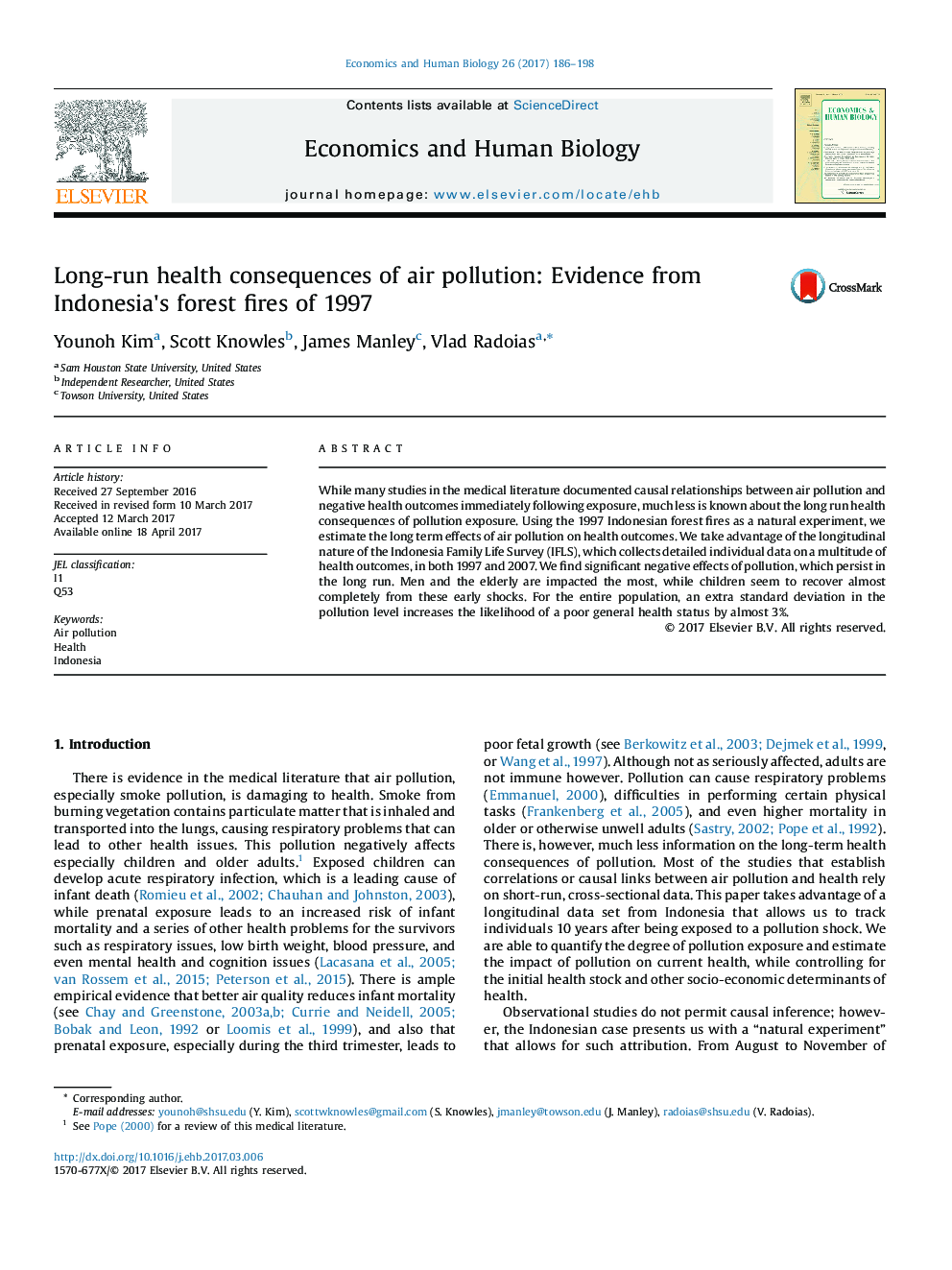| Article ID | Journal | Published Year | Pages | File Type |
|---|---|---|---|---|
| 5056819 | Economics & Human Biology | 2017 | 13 Pages |
â¢We study the long-run health consequences of air pollution.â¢We find significant negative effects that are especially problematic for the elderly.â¢Children seem to recover quite well from early pollution shocks.â¢Men seem to suffer more from pollution than women.â¢One standard deviation of pollution raises the likelihood of bad health by about 3%.
While many studies in the medical literature documented causal relationships between air pollution and negative health outcomes immediately following exposure, much less is known about the long run health consequences of pollution exposure. Using the 1997 Indonesian forest fires as a natural experiment, we estimate the long term effects of air pollution on health outcomes. We take advantage of the longitudinal nature of the Indonesia Family Life Survey (IFLS), which collects detailed individual data on a multitude of health outcomes, in both 1997 and 2007. We find significant negative effects of pollution, which persist in the long run. Men and the elderly are impacted the most, while children seem to recover almost completely from these early shocks. For the entire population, an extra standard deviation in the pollution level increases the likelihood of a poor general health status by almost 3%.
